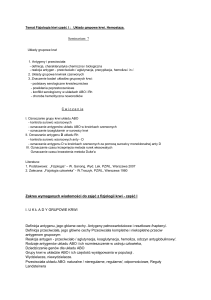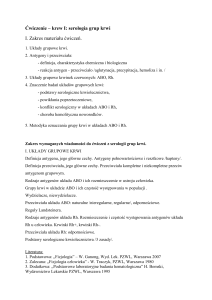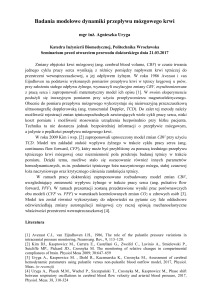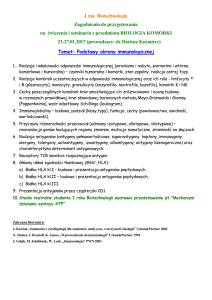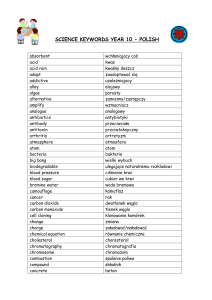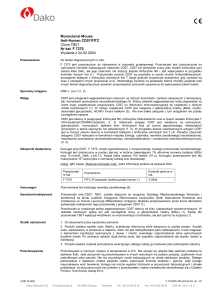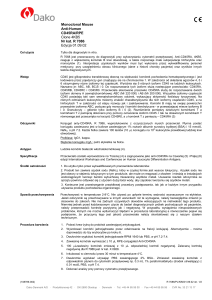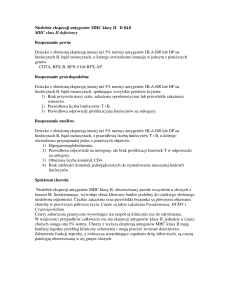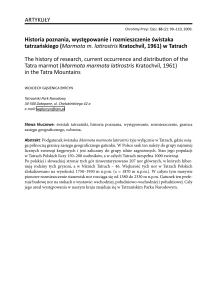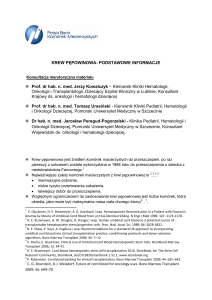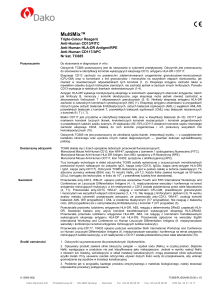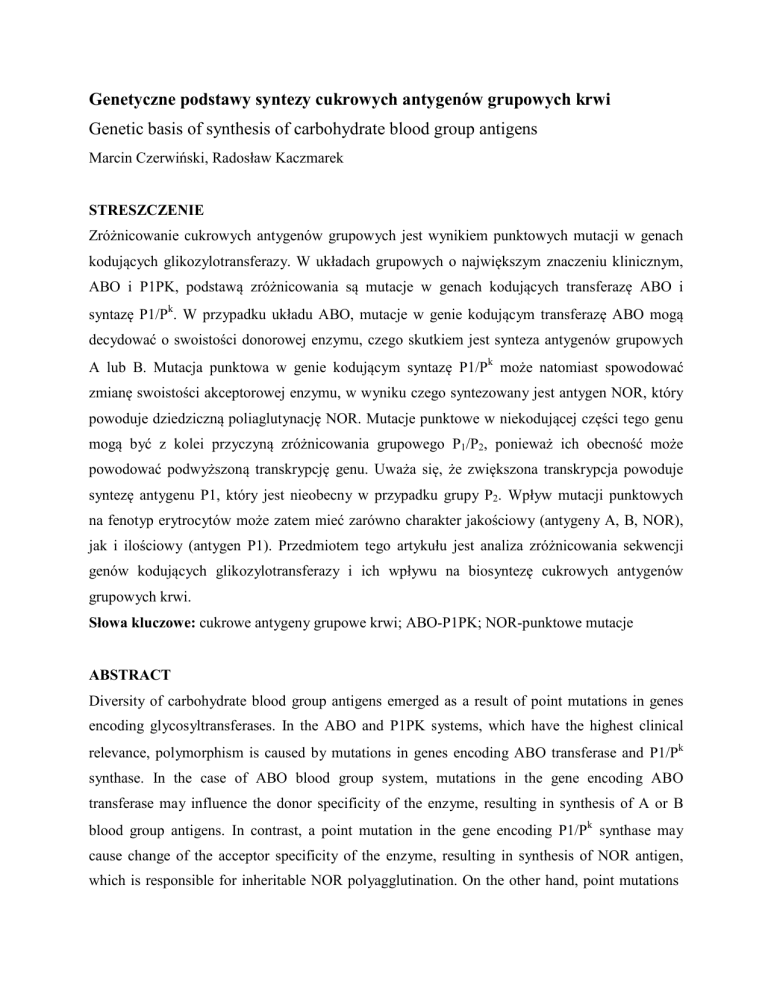
Genetyczne podstawy syntezy cukrowych antygenów grupowych krwi
Genetic basis of synthesis of carbohydrate blood group antigens
Marcin Czerwiński, Radosław Kaczmarek
STRESZCZENIE
Zróżnicowanie cukrowych antygenów grupowych jest wynikiem punktowych mutacji w genach
kodujących glikozylotransferazy. W układach grupowych o największym znaczeniu klinicznym,
ABO i P1PK, podstawą zróżnicowania są mutacje w genach kodujących transferazę ABO i
syntazę P1/Pk. W przypadku układu ABO, mutacje w genie kodującym transferazę ABO mogą
decydować o swoistości donorowej enzymu, czego skutkiem jest synteza antygenów grupowych
A lub B. Mutacja punktowa w genie kodującym syntazę P1/Pk może natomiast spowodować
zmianę swoistości akceptorowej enzymu, w wyniku czego syntezowany jest antygen NOR, który
powoduje dziedziczną poliaglutynację NOR. Mutacje punktowe w niekodującej części tego genu
mogą być z kolei przyczyną zróżnicowania grupowego P1/P2, ponieważ ich obecność może
powodować podwyższoną transkrypcję genu. Uważa się, że zwiększona transkrypcja powoduje
syntezę antygenu P1, który jest nieobecny w przypadku grupy P2. Wpływ mutacji punktowych
na fenotyp erytrocytów może zatem mieć zarówno charakter jakościowy (antygeny A, B, NOR),
jak i ilościowy (antygen P1). Przedmiotem tego artykułu jest analiza zróżnicowania sekwencji
genów kodujących glikozylotransferazy i ich wpływu na biosyntezę cukrowych antygenów
grupowych krwi.
Słowa kluczowe: cukrowe antygeny grupowe krwi; ABO-P1PK; NOR-punktowe mutacje
ABSTRACT
Diversity of carbohydrate blood group antigens emerged as a result of point mutations in genes
encoding glycosyltransferases. In the ABO and P1PK systems, which have the highest clinical
relevance, polymorphism is caused by mutations in genes encoding ABO transferase and P1/Pk
synthase. In the case of ABO blood group system, mutations in the gene encoding ABO
transferase may influence the donor specificity of the enzyme, resulting in synthesis of A or B
blood group antigens. In contrast, a point mutation in the gene encoding P1/Pk synthase may
cause change of the acceptor specificity of the enzyme, resulting in synthesis of NOR antigen,
which is responsible for inheritable NOR polyagglutination. On the other hand, point mutations
in the noncoding fragment of that gene may be the cause of P1/P2 blood polymorphism, acting by
up regulating the transcription of P1/Pk synthase. The increased transcription may result in
expression of P1 antigen, which is absent from erythrocytes from P2 individuals. Thus, influence
of point mutations on erythrocyte phenotype may be of quantitative (antigens A, B, NOR) or
qualitative nature (antigen P1). This article attempts to provide an insight into the diversity of
genes encoding glycosyltransferases and its influence on synthesis of oligosaccharide blood
group antigens.
Keywords: Carbohydrate blood-group antigens; ABO-P1PK; NOR-point mutations

